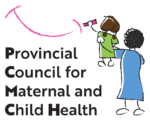PCMCH recognizes that historical beliefs about, and attitudes towards, Indigenous peoples have resulted in enormous inequities faced today that take place within many different systems, including the health, child welfare, education and justice systems. Anti-Indigenous racial discrimination and bias have profound negative impacts on the health and wellness of Indigenous peoples in Ontario. There have been numerous stories of unfair, racist and dangerous treatment received by Indigenous peoples in healthcare settings that have had tremendous impact on their health, including death. The roots are based in colonization and the accompanying attitudes and practices are deeply embedded within many societal structures, both within and outside of the health system.
Indigenous Health Initiatives
Measles Fact Sheet: "Protect Yourself and Your Family Against Measles" (August 2024)
Indigenous Primary Health Care Council (IPHCC) and Provincial Council for Maternal and Child Health Relationship Agreement (August, 2023)
PCMCH Statements on Indigenous Equity
PCMCH Statement Recognizing National Indigenous People’s Day (June, 2021)
Statement from PCMCH for the National Day of Truth and Reconciliation (September, 2023)
Statement from PCMCH for the National Day of Truth and Reconciliation (September, 2022)
Statement from PCMCH in Recognition of Orange Shirt Day (September, 2021)
Statement in Recognition of Missing and Murdered Indigenous Women and Girls (October, 2021)
Indigenous Health Equity Resources
To learn more about Indigenous Health Equity, the impact the systemic barriers have on health (and other areas), and what’s needed for meaningful change to occur, the following resources are provided. Although some of these resources are not Ontario-specific, the issues have relevance to Indigenous peoples across Canada:
- Indigenous Cultural Safety Collaborative Learning Series: Webinar series designed to provide a provincial, national and international platform to address a broad range of issues related to the ways in which Indigenous people experience and intersect with systems (i.e., health, justice, education, and child welfare)
- In Plain Sight: Addressing Indigenous-specific Racism and Discrimination in B.C. Health Care: Report of the Addressing Racism Review (2020)
- Inuit Child First Initiative: Ensures Inuit children have access to the essential government funded health, social and educational products, services and supports they need, when they need them
- Jordan's Principle: Ensures First Nations children have access to products, services and supports they need, when they need them
- Joyce's Principle: Aims to guarantee the right of equitable access to health and social services, as well as the right to enjoy the best possible physical, mental, emotional and spiritual health for all Indigenous peoples
- Ontario Health Equity, Inclusion, Diversity and Anti-Racism Framework: Ontario Health’s framework for addressing racism and discrimination and reducing inequities in the health system
- National Centre for Truth and Reconciliation: Truth and Reconciliation Commission of Canada Reports and Calls for Action
- National Collaborating Centre for Indigenous Health: Established to support First Nations, Inuit, and Métis public health renewal and health equity through knowledge translation and exchange
- National Inquiry into Missing and Murdered Indigenous Women and Girls: Final report and calls for justice regarding the systemic causes of all forms of violence against Indigenous women and girls, including sexual violence
- Sixties Scoop: Information regarding the Sixties Scoop and the over-representation of Indigenous children and families in the child welfare system
PCMCH acknowledges the harm, and the mistakes that have been made and continue to be made – all based on deeply embedded colonial ways of thinking that exist in society, including healthcare organizations and in PCMCH. We know we have much to do to overcome the harms and traumas of the past, and much to learn from Indigenous leaders, Elders, organizations and communities to ensure a very different future. PCMCH is committed to continuing meaningful discussions with Indigenous colleagues, leaders and communities about what needs to be done differently to ensure the health needs of First Nation, Inuit and Métis pregnant individuals, newborns, children, youth and their families are met. This is essential to an equitable and inclusive health system.
